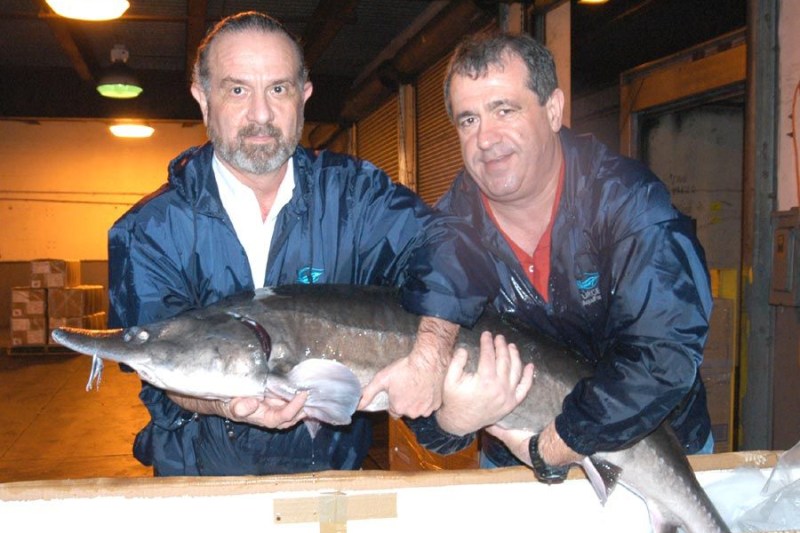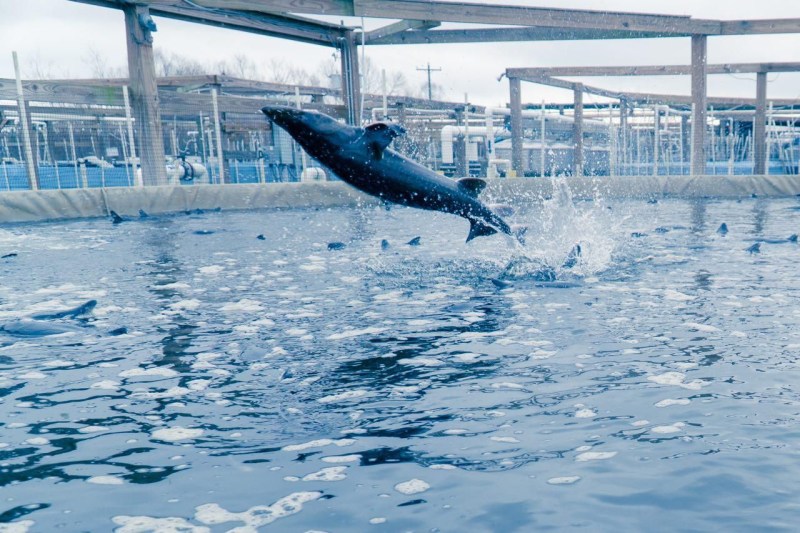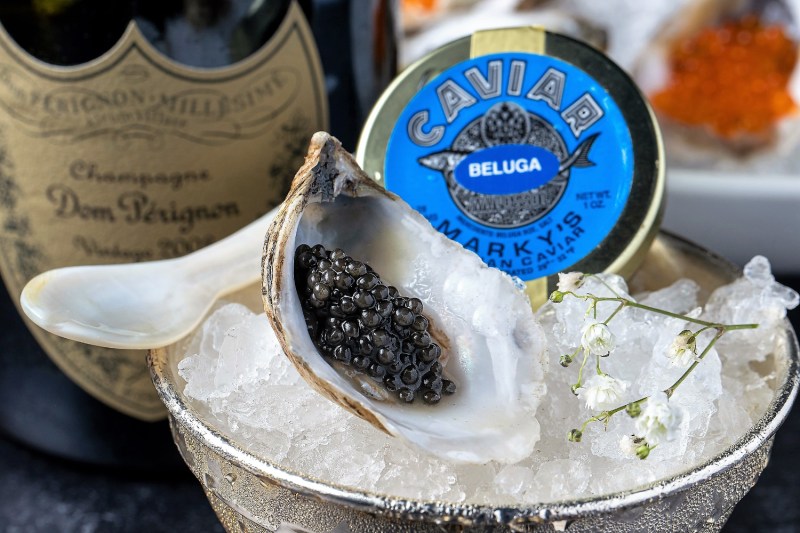If you’re looking for domestic caviar, you have very few options here in the U.S. Sturgeon AquaFarms, located near the Florida panhandle, is one of America’s only commercial operations, raising a handful of different sturgeon species to produce the highly coveted luxury food.
Mark Gelman is the cofounder of Marky’s, a specialty food store in Miami. He and Mark Zaslavsky launched the outfit in 1983. Years later, in the 1990s, the two started a sustainable fish farm near the border of Alabama to produce local caviar. “We noticed that there was a need for fresh seafood and caviar, specifically from where we are from, which is eastern Europe,” Gelman said. “So we decided to start a business selling gourmet food with our main focus being caviar.”

Gelman was first exposed to the decadent fish eggs as a kid. His mother treated him to some at a high-end restaurant in Moscow. It was a new experience for his palate and he recalls enjoying it very much. The taste for caviar stuck with him and after teaming up with Zaslavsky and the farm, he would ultimately produce several kinds himself. It’s about as rare and specialized of an operation as there is in all of food.
Presently, the caviar farm is responsible for five varieties of the sought-after luxury food — beluga, sevruga, sterlet, osetra, and Siberian. They’re all sturgeon species native to eastern Europe. The fish were initially brought over in the early 2000s but the U.S. banned beluga imports in 2005. It wasn’t until 2016 that Gelman and Zaslavsky were granted a federal exemption for the commercial sale of beluga. “It took a long time and a lot of legal work, but in the end, we think it was well worth it.”
It’s a big reason why they’re the only show in town, having started before the ban and ultimately being allowed to continue. The farm itself is impressive and very sustainably-minded. It’s also a lot of work, with constant monitoring of oxygen levels and feeding and electricity needs. Oh, and there’s Marky’s, the retail spot they also run on the side, which keeps the two very busy. The objective has always been to keep this kind of farming afloat, especially in the wake of overfishing, which is especially pertinent to sturgeon fisheries abroad. Many sturgeon species are listed as endangered. (Beluga being critically so.)

“We have sent approximately 40-50 thousand fertilized eggs from our farmed sturgeon back to the Caspian Sea so that we can help regrow the population of endangered sturgeon there,” said the caviar producer, referring to the fish’s native homeland. “We have also supported the scientific authorities of Russia and Azerbaijan in their efforts to repopulate the sturgeon population. In addition to that, we keep our fish very healthy and have been growing them at our aquafarm for almost 20 years. We can spawn baby sturgeon using our brood stock so that we never have to take sturgeon out of the wild.”
But what of the precious caviar, one of the most expensive foods on the planet (up there with Cognac, truffles, certain coffees, rum, and more)? “The caviars are mainly different in terms of size, color, and taste,” Gelman stated. “Beluga caviar is famously known as being the best, with the biggest size and best pop in your mouth producing a nutty, buttery, and creamy flavor. Sevruga produces much smaller caviar beads, is very gray in color, and has a very smooth and sweet ocean finish when tasted. Osetra caviar is medium in size, right in between beluga and sevruga, and has a very nutty taste. These beads can vary from deep brown to gold; gold being the most prized.”
It’s not uncommon for caviar to fetch $16,000 per pound. At Sturgeon Aquafarms, it’s a patient process. The fish are raised and start delivering eggs after about a decade. The 120-acre farm houses about 100 tanks of fish, including the original beluga sturgeon, now approaching 20 years old. They’re like dinosaurs, at 9 feet in length and more than 300 pounds in weight. It’s not uncommon for them to live to be 100.

The farm might have been closer to Miami if not for the danger of hurricanes. (One still hit the farm’s Bascom, Florida headquarters a few years back, causing significant damage.) They make the harvested eggs into caviar and send it to Marky’s outlets, including several in both Florida and New York. It’s the main luxury item in a store that also sells everything from foie gras to fresh truffles.
We can’t all eat caviar, at least not all the time, but it is a splurge worth entertaining, especially if you know what you’re doing. Gelman has a particular practice he likes when it comes to the luxury food. “My favorite way to enjoy caviar is with a glass of nice Champagne or a shot of vodka,” he said. “Specifically, I like to put a dollop of caviar in between my pointer finger and thumb and eat it off my hand in a single movement. This has recently become a trend with people calling it ‘bumping.'”


